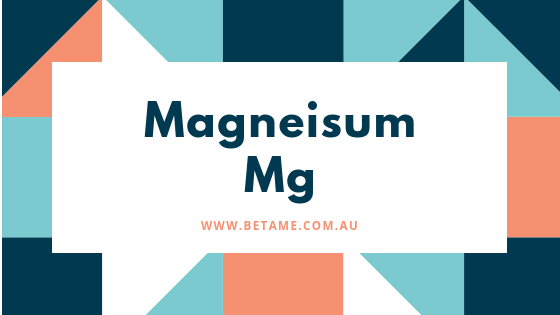If there is one supplement that we should all consider adding to our health regime it would be magnesium. Magnesium is a mineral that is found in each and every cell (the most important and basic structural, functional, and biological unit of all known living organisms) of the body.
Magnesium is involved in over 300 internal reactions that help us to function at our best. This is one heck of a mineral! It supports the nervous system and brain functioning by regulating hormones known as neurotransmitters (messengers AKA our happy hormones). But as you will soon read, there are many other important roles that magnesium plays in the body.
A Depleted Society
Australian Health Surveys have found that many Aussies consume below the recommended daily intake of magnesium in their diet. This can be attributed to more than just poor dietary intake. The foods that we consume which, in their most pure form should be high in magnesium, are often stripped of their mineral content in processing. For example, grains should contain an abundance of magnesium, however, in the milling process of white rice, pastas and breads this magnesium is removed, along with fibre and other minerals. Therefore, without the inclusion of wholegrain foods in the diet we are depriving ourselves of important nutrients.
Other dietary and lifestyle factors can reduce our absorption and deplete our body’s magnesium levels. High levels of calcium, sodium or salt, caffeine (black tea, coffee, energy drinks and pre-workout/caffeine supplements), alcohol and loss of minerals through sweating can all impact how much magnesium our body obtains.
Did You Know?
Stress that lasts for long periods of time or frequent stressors, can also play a role in the depletion of magnesium. Stress accelerates the release of our fight-or-flight hormones cortisol, adrenalin and noradrenaline. This process alone can lead to rapid magnesium depletion, with the result being increased transportation of intracellular magnesium out of the cell to be removed from the body.
Glutamate Is Not Your Mate
Another neurotransmitter glutamate is known to be excitatory. Magnesium plays a role in reducing the release of glutamate, therefore reducing hyperexcitability of neurons (the basic working unit of the brain that transmit information to other nerve cells, muscle, or gland cells) allowing us to relax and remain calm. When our friend magnesium is introduced, it enhances the conversion of glutamate to GABA. GABA is an inhibitory neurotransmitter which works to calm a hypersensitive nervous system, such as anxiety presentation.
When we experience magnesium deficiency, the above mentioned processes can not take place and there becomes no reprieve for the excitation leaving us exhausted.
Depression & Magnesium
It is thought that magnesium may help improve depression severity by the reduction of excitatory and fight or flight hormones cortisol and adrenocorticotropic hormone. This incredible mineral has even demonstrated the ability to act on the blood brain barrier (the barrier that protects our brain) and reduce stress hormones from accessing the brain.
Other benefits of magnesium
Magnesium has shown promise in:
- regulating blood glucose
- protein synthesis
- enhanced muscle and nerve function and recovery
- increasing energy production
- maintaining electrolyte balance
- reducing oxidative damage
- prevention of osteoporosis
- regulating blood pressure
- and more…
What are the symptoms of magnesium deficiency?
- Headaches/Migraines
- Body fatigue
- PMS/Menopausal symptoms
- Poor sleep
- Anxiety/ Inability to cope with stress/ Depression
- Brain fog/confusion
- Irritability
- Cramping/Muscle twitches
- Restlessness
- Osteoporosis
Speak with your Nutritionist or Health Practitioner to see if magnesium may benefit you. Contact Danielle at Beta Me Nutrition



